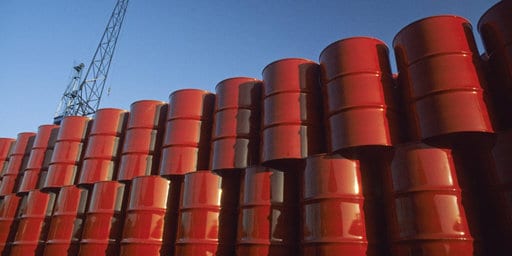Australia’s dependence on imported oil supplies – and the current federal government’s ongoing failure to minimise this via bolstering electric vehicle uptake – is in the spotlight, after the weekend bombing of a Saudi oil processing plant.
The coordinated attack by 10 drones, which has been attributed to Iran-backed rebels, has wiped out half of Saudi Arabia’s oil production, or 5 per cent of global oil supplies, and sent prices of the commodity up by record amounts at the start of trading on Monday.
In Australia, the immediate concern is around how this global event will impact local petrol prices. These concerns were waved away by federal energy minister Angus Taylor on Monday morning, in an interview with ABC Radio.
“The IEA has informed us that we are well stocked, that the world is well stocked,” he told the AM program’s Sabra Lane. “This is a global disruption, it’s about global prices, so we’d expect any impact (on Australia) to be minimal.”
But the Saudi attack also brings into sharp relief Australia’s increasing vulnerability in the global oil market – already the subject of a Federal Government review.
As Michael Mazengarb reported here, negotiations are currently underway between the federal government and the US Trump Administration to secure access to American oil stockpiles in an emergency.
But such deals, said The Australia Institute at the time, ignore the crucial opportunities that exist – and are being missed – for Australia to reduce its dependence on oil supplies, including by incentivising the uptake of electric vehicles.
“Last year Australia had access to only 20 days-worth of liquid fuel, but the emergency powers to ration fuel stocks take up to 3 weeks to be implemented. This means that by the time the rationing powers come into force, there may not be any fuel left to ration,” TAI’s climate and energy program director Richie Merzian said last month.
“Addressing Australia’s fuel security risks requires a reduction in oil use,” it added. “This involves increasing fuel efficiency and transitioning to non-oil energy sources through electric vehicle targets and fuel efficiency standards.
“Weak fuel standards and an absence of a national electric vehicle policy leave Australia among the least fuel-efficient fleets in the OECD, and far behind the rest of the world in electric vehicle uptake.”
Federal Labor’s energy spokesman Mark Butler picked up on this point again on Monday, and disputed Taylor’s claims that Australia was holding its required 90 days of fuel reserves, including “stock on water.”
“In April of this year, the government’s own Liquid Fuel Security Review stated Australian stocks are only 53 days of net imports, and can cover Australian use of petrol, diesel and jet fuel for no more than 23 days,” Butler said.
The inclusion of “stock on water,” Butler added, “under no reasonable definition can be counted towards Australian supplies in an emergency and are not counted as Australian fuel stocks by the IEA.
“Australia’s fuel security is an extremely important issue, especially at a time of heightened security risks, and for Minister Taylor to make incorrect and misleading statements about Australia’s fuel security just shows the Minister is more interested in political posturing than the security of Australia’s energy system,” he said.










